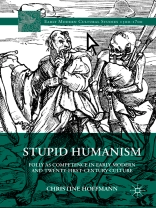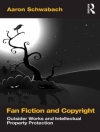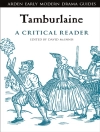This book frames the undeniably copious 21st-century performances of stupidity that occur within social media as echoes of rhetorical experiments conducted by humanist writers of the Renaissance. Any historical overview of humanism will associate it with copia—abundance of expression—and the rhetorical practices essential to managing it. This book argues that stupidity was and is a synonym for copia, making the humanism of which copia is a central element an inherently stupid philosophy. A transhistorical exploration of stupidity demonstrates that not only is excess still the surest way to eloquence, but it is also just the kind of spammy, speculative undertaking to generate a more generous and inventive comprehension of human and nonhuman relationships. In chapters exploring the rhetorics of memes, attack ads, public shaming blogs, clickbait and gifs, Stupid Humanism outlines the possibilities for a humanism less invested in the normative logics that enshrine knowledge, eloquence and linear development as the chief indicators of an active, articulated selfhood and more supportive of a program for queer knowledge, trivial pursuits, anti-social ethics and the curious relationships that form around and in response to abundance of expression.
Inhaltsverzeichnis
1 Introduction: Spamming the Renaissance.- 2 Middling Through Somehow: Queer Temporality and the Disaster Meme.- 3 Folly 2020! The Campaign for Foolishness in 21st-Century Politics.- 4 The Anatomy of Public Shaming.- 5 What is Clickbait? (Check All That Apply).- 6 The Faerie Queene, the Gif and the Rhetorical Stuplime.
Über den Autor
Christine Hoffmann is Assistant professor in the English Department at West Virginia University. She writes and teaches about early modern English literature; the rhetoric and ethics of social media; and the posthuman intercessions within
copia and collecting. If you are a collector of weird stuff, contact her at [email protected].












